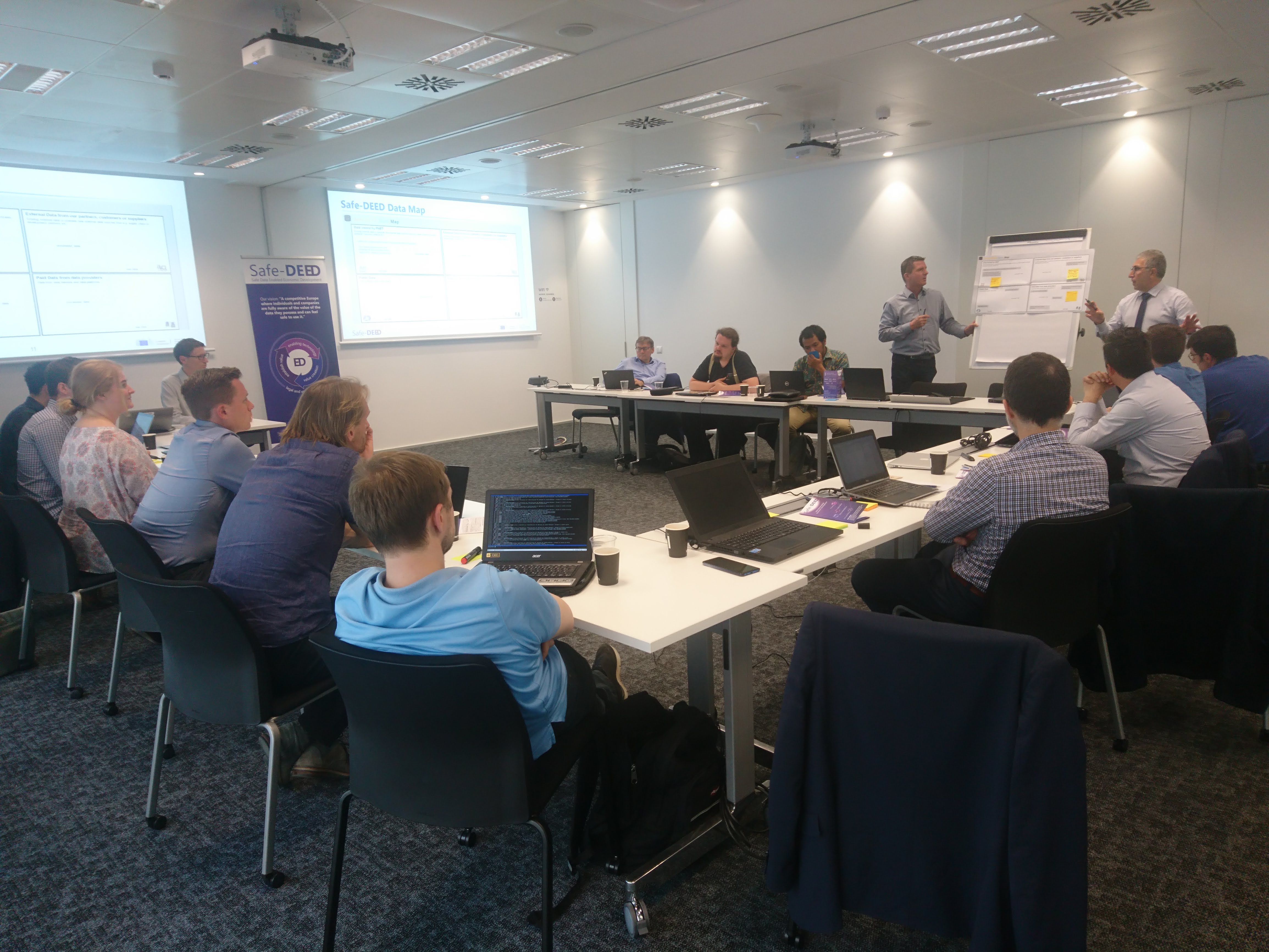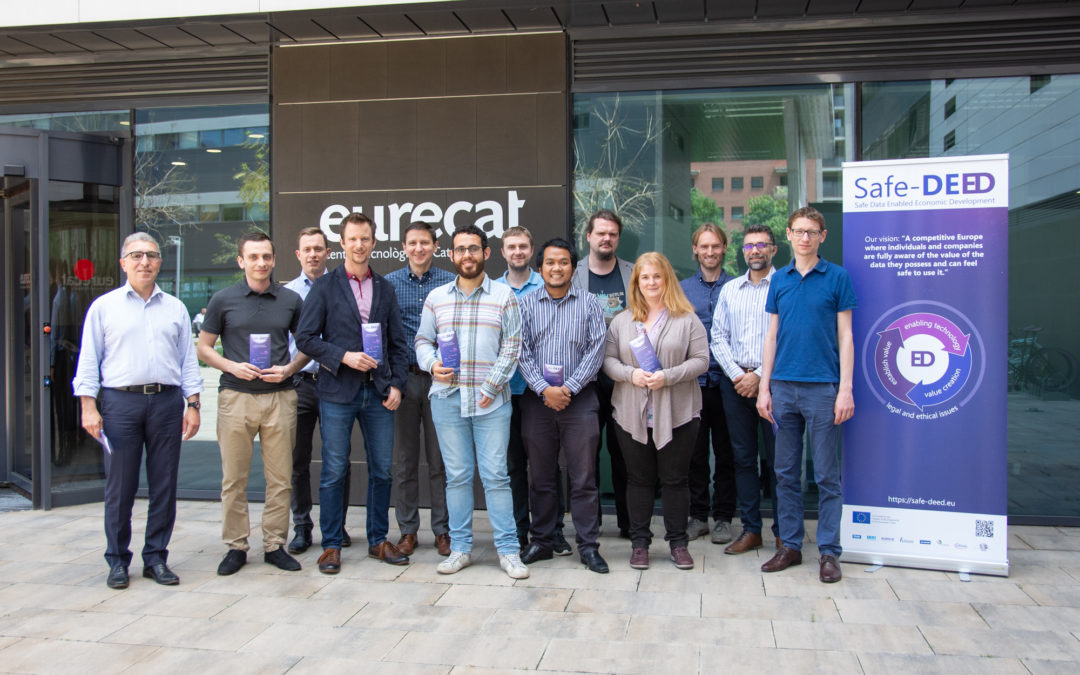At the beginning of this week the Safe-DEED consortium met again, for the first time in its plenary format after our kick-off meeting in Vienna last December. This time, the full team was hosted by our colleagues at Eurecat, in Barcelona. The location was agreed already at the kick-off meeting, and it turned out to be particularly good, because the consortium has brand new colleagues at Eurecat, and it was the perfect opportunity to meet them in their offices.
As usual, such a meeting is essentially structured in three parts:
- current status of the project
- working together on cross-WP issues
- planning for the next 6 months
For the first part, it was fantastic to see how much progress was made across the WPs. At the end of this month it will be our M6, so a number of deliverables are due. All public deliverables will be uploaded on this website and are available on the resources page.
For instance, Alessandro Bruni, from KU Leuven, presented their study on the legal aspects of technologies developed in Safe-DEED. At the Kick-off meeting, we had identified, among other issues, the potential effect of MPC in the context of Competition Law (if two or more companies in the same brach exchange data, even if encrypted, is that still a potential problem?) Our colleagues at KU Leuven did the research and replied in a legal manner…“it depends”. In general Platforms are not yet clearly included in competition law, and in general, Contractual law is not a matter of the EU, but of the member states. Nevertheless, this is an area where the EC and the legislative of the Union, the Parliament and the Council, are working on.
In WP2 (Business models) a significant portion of work was dedicated to threat modelling. This is pivotal because all the encryption methods won’t help if there is a back-door into the system. Even simple awareness enhancing communication helps here.
In terms of business models themselves, our colleagues from TU Delft organised together with our hosts at Eurecat a workshop in the evening of May 27th—see below.
Related to business models, work in WP4 (Data value) started by creating a comprehensive questionnaire about the meaning for companies to try to define the meaning of data value for them. The full results are also documented in the Deliverable 4.1. In creating this kind of survey, we had to take particular care to distinguish between the technical and the business aspects – both in the questionnaire itself as well as in the target recipients of the questions. This work makes it again that much more obvious, the need for the two aspects present in Safe-DEED: the technical and the business/legal aspects, working in sync to create value in the data economy.
Enabling this value creating are the technologies developed in WP5. Colleagues from Know-Center and RSA reported on their activities since the beginning of the project. On one side, the de-anonymization research was carried out together with colleagues at ForthNet, and Alexandros Bampoulidis (RSA) reported on the week spent in Athens analysing the data available at the telecom provider, in order to increase the confidence that the data used is trully anonymous.
On the other hand, colleagues at Know-Center, working on Multi-Party Computation (MPC), have explained to the rest of the consortium, the principal idea behind this technology: i.e. everything that can be done now with a Trusted Third Party (TTP, i.e. a notary) can be done even more securely with MPC, without the need for an external entity. Of course, there is also a draw-back to the technology. Namely, the computational complexity. Everything can be done, but not as fast. In fact, this is the main blocker of the technology, that our colleagues in Graz are working to overcome.
Business workshop
After all the technology talk of the afternoon, in the early evening we invited guests from Barcelona to join us in business workshop, led by Prof. de Reuver (WP2 lead).

After the plenary meeting, together with guests from Barcelona, we worked out some business use-cases for the technologies developed in Safe-DEED


